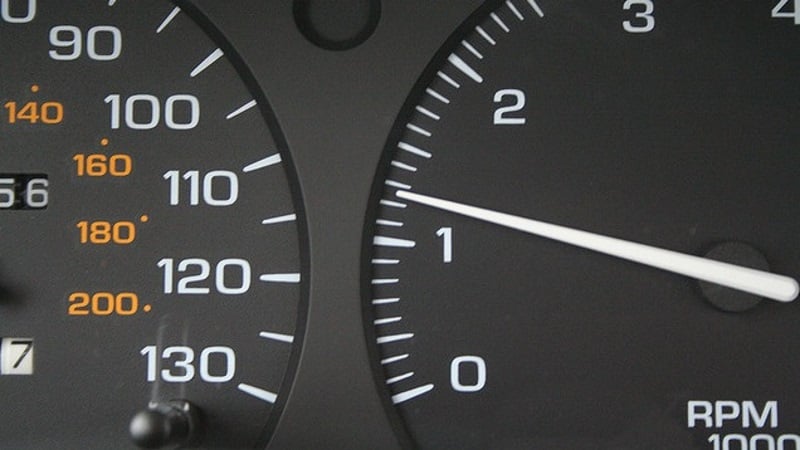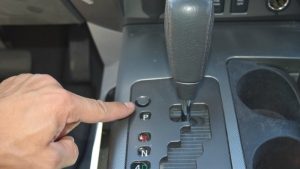About high idle levels:
High idle levels (or rough idling) occurs when the engine is revving too fast when it is in park/neutral. The car may be louder than normal, or you may feel shaking (in more severe cases).
When you put your car into park or neutral , the engines idle control valve maintains a specific idle speed, allowing your car to use minimal engine amounts of fuel. If this idle control valve is not able to function correctly, your idle speed will significantly increase (or decrease).
How to identify high idle levels:
High RPM – Idle speed is measured in revolutions per minute (RPM). For most 2 liter and below sized engines the vehicles, the standard idle speed should be around 750 RPM (when the engine is warm). If your car’s RPM is above 900 with a warm engine while idling, it is likely using too much fuel.
The general rule is the larger the engine size the slower the engine idle rpm should be, For example a 1 liter (1000 cc) engine might have a normal warm idle speed of 850 rpm. While a 5L (5000 cc) V8 engine might have a warn engine idle speed of 550 rpm. Therefore you must know your engine size before determining if your warm engine rpm is correct.
Increased fuel consumption – You may find that driving uses more fuel than normal, especially if you are stuck in traffic and idling a lot. This is because when you are idling, the car’s engine is still using fuel.
Loud engine – A faster revving engine will produce much more noise when your car is idling. This is sometimes accompanied by shaking.
Clunks / jerks into gear – if your vehicle has an automatic transmission, it may clunk, jerk or bang into drive / gear if the engine is idling too fast.
Causes of high idle levels
A high idle level can point to several different problems. These include:
1. Faulty idle control valve
The idle control valve ensures that the engine runs at the correct level while idling. Over time, the valve or its control circuit can fail, causing the engine to run at high rpm when the car is idling.
2. Blown fuse
The idle control valve is connected to a fuse. If this fuse blows, the valve will not receive any power, causing it to not work at all.
3. Computer or sensor malfunction
If the sensors send incorrect signals to the computer, an excess amount of fuel or air may be added to the engine. This can result in a rich fuel mixture, causing the engine to idle roughly.
4. Vacuum leak
If a vacuum leak occurs, extra oxygen will enter the vehicle. In order to keep a healthy balance of fuel and oxygen, more fuel will be added, resulting in a loud, rough idle.
5. Engine Coolant Temperature Sensor failure
if the engines coolant temperature sensor fails, then the engine electronic control unit (ECU) may think the engine is still cold and keep the engine rpm high, by commanding the idle air control valve appropriately.
6. Electrical load detection (ELD) circuit fault
The electrical load detection circuit is designed to send a signal to the engine ECU when additional electrical loads are activated on the vehicle electrical system. This is because these extra electrical loads take extra energy from the engines alternator, which can slow the engine rpm down. To compensate for this drop in idle rpm, the electrical load detection circuit signals the engine ECU to increase the engine rpm, by changing the settings to the idle air control valve. If the electrical load detection circuit fails, then the signal to the engine ECU might be to permanently increase the engine RPM even without increased electrical load, meaning the engine idle RPM when warm becomes too high.
High or Rough idle – Diagnostics Services in Hamilton
Is your car idling too fast, roughly or loudly? If so, there could be a complicated problem that needs fixing. At Grimmer Motors, we can diagnose and fix your vehicle, preventing the idling problem from continuing. This will stop the vehicle from using excess fuel / emissions and producing loud noises while idling.
For the best quality vehicle inspections and service in Hamilton, contact Grimmer Motors today!


